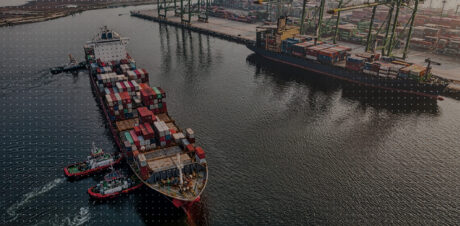Recently, the Uyghur Forced Labor Prevention Act (UFLPA) went into effect in the United States. This federal law aims to ensure that no product “made wholly or in part” in China’s Xinjiang Uyghur Autonomous Region gets imported into the U.S., as the region is known for its widespread use of forced labor and human rights violations against the Uyghur ethnic minority.
Once the law went into effect, we gathered a panel of experts with legal, advocacy, and regulatory backgrounds for a roundtable discussion on the impact of the law. This group of experts believe the UFLPA is unlike any other of its kind and has the potential to have far reaching trade implications.
Here are five unique features and potential impacts of this historic law:
1. Short law, massive impact
When it comes to the UFLPA, you won’t find pages and pages of legal jargon. The operative text of Section 307 is a mere 54 words long, but has the potential to disrupt a vast amount of global trade. This sheer fact has led John Foote, forced labor expert and Partner at Kelley Drye & Warren, to coin the UFLPA as “the most interesting law in the world” in his Forced Labor & Trade newsletter.
The affected imports are not limited to shipments directly from China; any product made either partially or with materials from Xinjiang is banned from entering the U.S. The value of finished goods with a link to the Xinjiang region has been estimated at a massive $64 billion.
2. No product left behind
What makes the UFLPA important is that it’s all encompassing. Any product, no matter the kind, is subject to the law. Jessica Rifkin, Senior Attorney & Customs, Trade and Litigation Team Leader at Benjamin L. England & Assoc. LLC, explained that in the past, these kinds of forced labor trade laws had been generally focused around a category of product, for example cotton. The UFLPA on the other hand is likely to disrupt a number of industries, particularly textiles, tomatoes, and polysilicon which is generally used in solar panels.
3. Importers face the burden of proof
Another interesting feature of this law is that it shifts the burden of proof to the importer. Any product that has contact with the Xinjiang region is presumed to be manufactured through forced labor and therefore banned. If an importer believes their product from Xinjiang was not made with forced labor, they will need to provide thorough, third-party vetted documentation that proves otherwise.
“That’s the genius of using an import ban,” said Foote. “Participation in the U.S. market is voluntary and importers should be forthcoming.” From a criminal perspective, the manufacturer and importer will be taking on liabilities if they choose to sell goods in the U.S. If a customs investigation is able to find that any one person involved had knowledge of the use of forced labor, they would be charged with the criminal statute of forced labor.
4. Unprecedented levels of funding
The United States is serious about enforcing the UFLPA. It’s being funded at a significantly higher level than previous forced labor regulations. In the past, $10 million was seen as a sufficiently large budget for fighting forced labor. “That’s what I’m here to do as a government official,” said Jennifer Williams, Acting Section Chief of Forced Labor for the DHS Center for Countering Human Trafficking. “We will uphold the law as we need to.”
Currently, the budget associated with the UFLPA is more than double that, and the Biden administration is asking for over $70 million and 300 personnel dedicated to enforcing this law. For context, the Office of Foreign Assets Control (OFAC) has a total headcount of around 200 and a $40 million budget to enforce all sanctions.
5. Seeking justice in Xinjiang
Funding the UFLPA at this level represents a political determination on behalf of the United States to acknowledge and deter the use of Uyghur forced labor in the Chinese Xinjiang region. Ultimately, that’s what makes this law so revolutionary.
Rushan Abbas, Founder and Executive Director at Campaign for Uyghurs, joined us on our webinar to share the story of how her activism against the Chinese government led to her family members being unlawfully detained. She added that while businesses willingly left Russia after the invasion of Ukraine, they have been slow to act when the perpetrator of human rights violations is a trade leader like China. The UFLPA will be critical in obstructing Chinese businesses from profiting off of forced labor.
Abbas said “without consistent pressure against the Chinese Communist Regime there will be no end of the genocide or other human rights violations.”
If you still have any remaining questions about the tremendous impact the UFLPA will have, watch our Master Class to learn how to use public data to spot forced labor in your supply chain.



